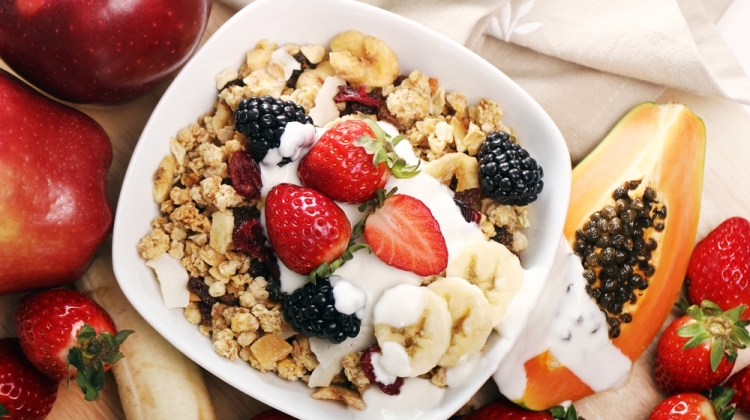


We all know that vitamins are important to health, but did you know that there are specific nutrients that may help maintain healthy vision and even improve visual function as well? Here are some essential nutrients that can promote healthy vision, improve visual performance and may reduce the occurrence of certain eye diseases.
Multivitamins
If you are currently consuming a multivitamin, you are on the right track to not only good health but to good eyesight as well. Studies have shown that the long-term use of multivitamins, B vitamins (specifically thiamine, riboflavin, niacin, folate and B12) and vitamin A supplements was associated with a reduced prevalence of cataracts. Other nutrients commonly found in multivitamins include vitamin B12 and magnesium; both have potential benefits for reducing the risk of vision loss due to glaucoma.
Another important eye nutrient is zinc, which plays a vital role in delivering vitamin A from the liver to the retina. Zinc is highly concentrated in the eye, mostly in the retina and choroid. Zinc deficiencies have been linked with impaired vision and cloudy cataracts. Zinc has also shown to help those suffering from age-related macular degeneration (AMD). The recommended daily dose of zinc is 40 to 80mg.
Essential fatty acids
DHA and EPA are important to eye health as DHA is found in the highest concentration in the retina and EPA is used in DHA biosynthesis. If you have dry eyes or wear contact lenses, consider including foods high in essential fatty acids such as omega-3 and omega-6 a few into your regular diet to reduce dryness. Omega-3 may also slow the progression of advanced AMD.
Good sources of Omega-6 include pumpkin seeds, safflower oil and flaxseed, foods high in Omega-3 include salmon, tuna and mackerel. Experts recommend at least 500mg of DHA/EPA a day.
Berries
Rich in anthocyanins, berries - especially dark blue, red and purple ones - can add a sparkle to the eye. Anthocyanins are potent antioxidants and are particularly effective at protecting blood vessels from the oxidative damage of free radical to prevent retina disorders such as AMD, glaucoma, and night blindness. Anthocyanins also strengthen collagen - the main protein in the tiny capillaries of the eye. Leaking capillaries impede proper delivery of blood and oxygen to the eye, resulting in disease. Berries may also help to relieve tired and dry eyes as well.
Anthocyanin-rich berries include: bilberries, acai, cranberries, blueberries, strawberries, wolfberries (goji), bilberries and raspberries.
Pine bark
The eye's inner lens consist of living cells that is totally dependent on the circulation of fluids inside the eye to provide nutrition and eliminate toxic waste products. Pine bark can help support this important circulatory function in the eyes. It also enhances visual adaptation of the eyes to different light environments, provides nutritional support in protecting the health of the retina and has protective properties which help to support the health of the eyes.
Lutein and zeaxanthin
Lutein and zeaxanthin are eye-protective nutrients called xanthophylls, and are the only carotenoids found in human body that are highly concentrated in the retina and macula -both of which are responsible for central vision and high visual acuity. Lutein acts as an antioxidant and filters harmful rays to protect the eye from free radical damage. Lutein supplementation results in increased lutein levels in the eye and even improved visual function in patients suffering from eye diseases such as AMD and cataracts. Beyond reducing the risk of developing eye disease, separate studies have shown that 10mg of lutein per day improves visual performance in AMD patients and cataract patients. Consuming a diet high in carotenoids, particularly dark green leafy vegetables, such as spinach and kale was associated with a 43% lower risk for AMD. Many of the studies that show a health benefit for lutein supplementation used doses of 10 mg a day or more. It is recommended to consume 2mg of zeaxanthin daily. Since the body cannot make these two essential nutrients, an adequate supply from the diet is important. Good sources of lutein from food are dark green vegetables, corn, papaya and green beans.
Antioxidants - Vitamin A, C and E
Vitamin A, C and E are antioxidants that help protect your eyes against damage. These antioxidants help promote healthy capillaries and support the health of blood vessels in the eyes. Vitamin A can help prevent cataracts from developing and a deficiency will lead to night blindness. Vitamin C and E have been associated in studies with delaying AMD. A study found that women using vitamin C for 10 years or more experienced a 64% reduction in the risk for cataracts. Vitamin C may also prevent glaucoma. Other antioxidants such as selenium, glutathione and alpha lipoic acid have also shown to protect the eyes from common eye conditions as well.
This article has been published with permission and is courtesy of GNC LiveWell, Malaysia.